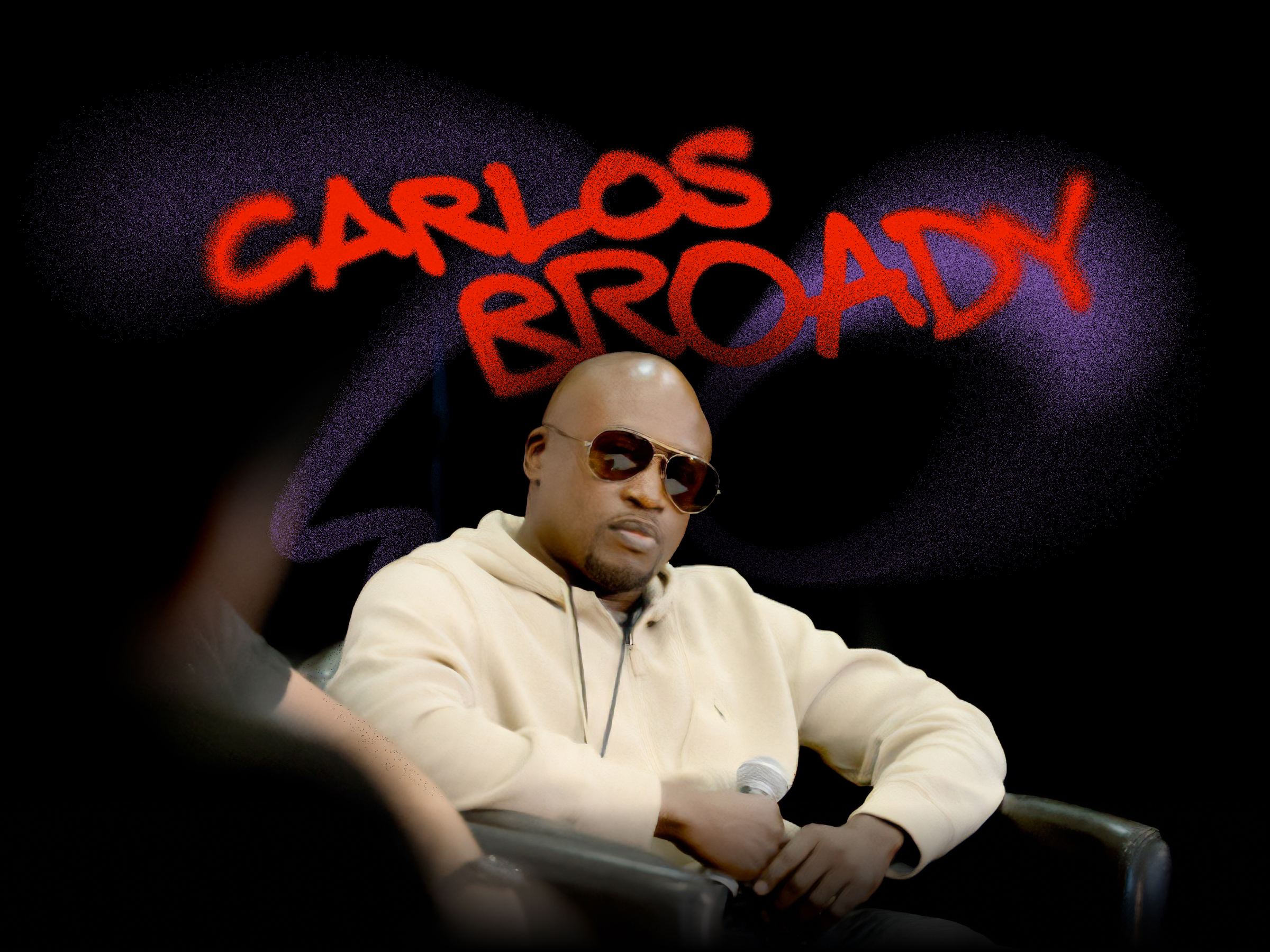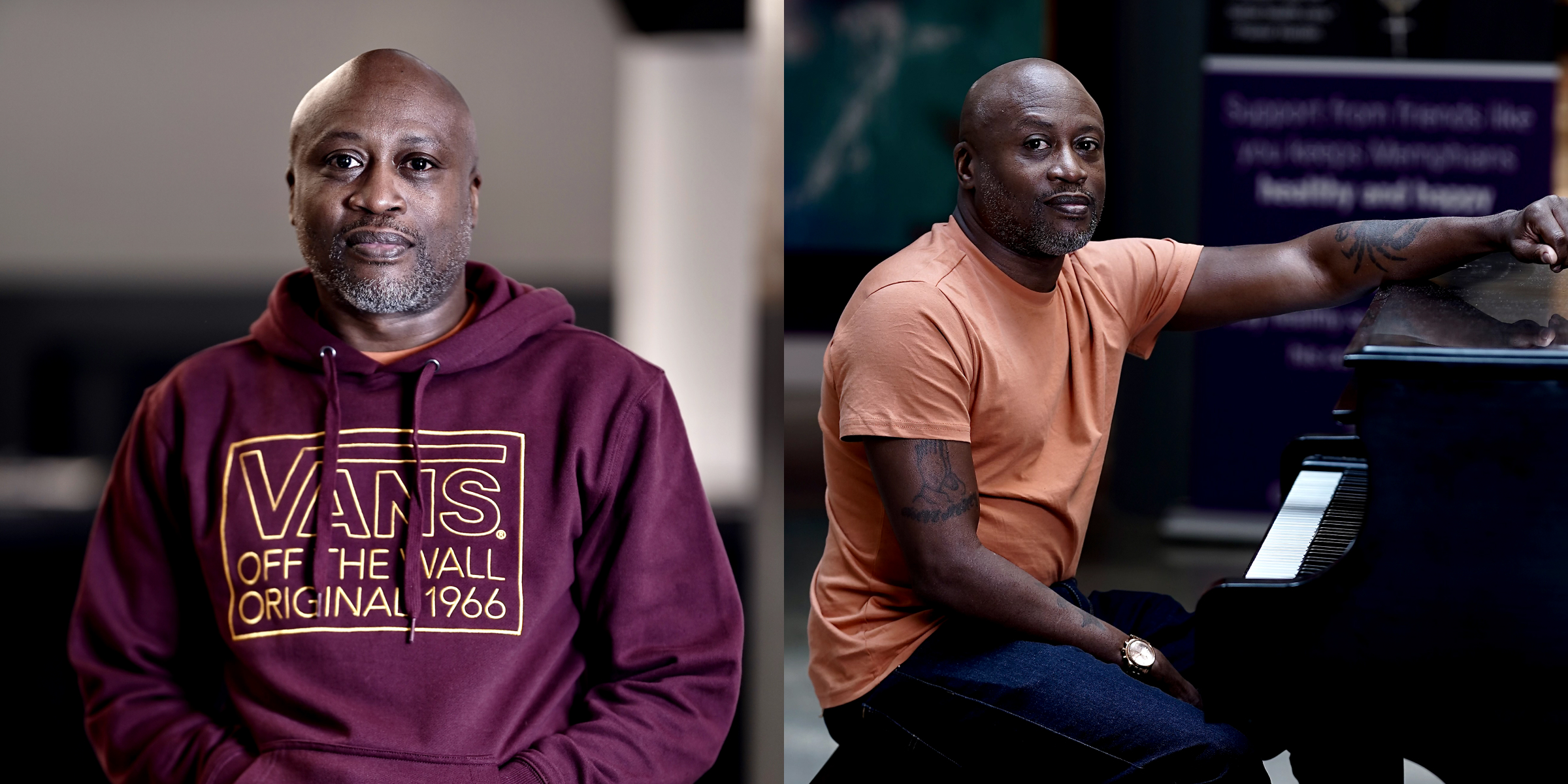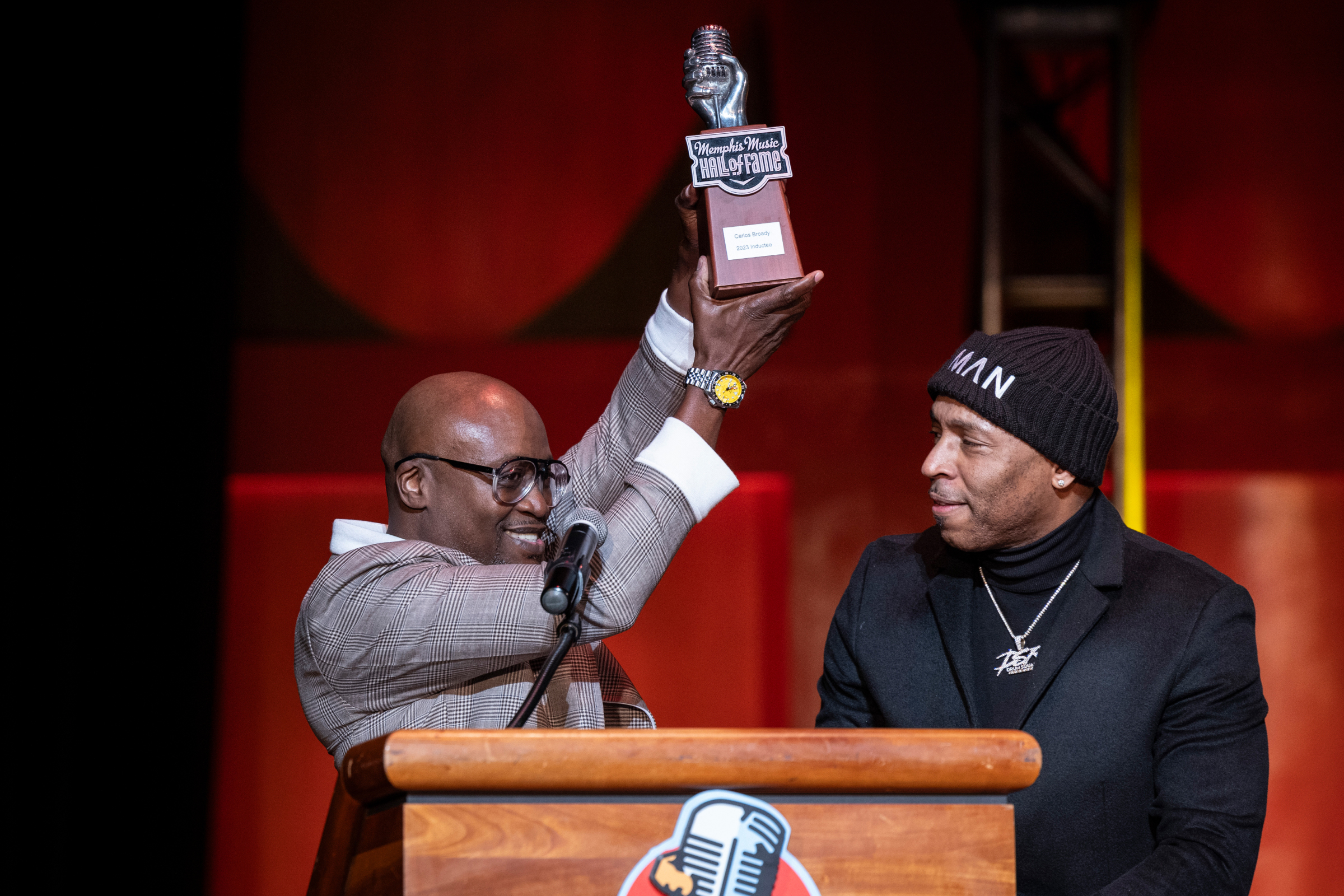
In fact, since the day he was born, right here in Memphis, Tennessee… born on, of course, July 6, 1972. Coincidentally, it was about the same time that hip-hop was born, according to much celebration throughout 2023, including a tribute at the 2023 Grammy Awards, celebrating back to the first hip-hop party held on August 11, 1973 in New York City (“Hip hop is turning 50. Here’s why this moment matters,” Keith McMillan, Washington Post). A young woman from the Bronx threw a back-to-school party at her apartment’s recreation center. To keep costs manageable, she had her 18-year-old brother be the DJ. She was Cindy Campbell, and her brother was Clive… better known to hip-hop aficionados as DJ Kool Herc.
However, Broady was born in Memphis, South Memphis to be exact, and grew up on Stax music (and here’s why that matters), among a family of singers and musicians. His uncle, singer/engineer William Brown, was a member of the Stax group the Mad Lads, an American rhythm and blues vocal group, who recorded on the Stax subsidiary label Volt in the 1960s. Their biggest hits were “Don’t Have to Shop Around” (1965) and “I Want Someone” (1966). Also, Brown’s brother, Randy Brown, had a record deal with Casablanca sub-labels Chocolate City and Parachute in the 1970s and early 1980s.
“In the mid-90s, coming from a music family.” said Broady on the “Path to Plaques” YouTube podcast, “I always knew music and music was always around me.” He has been in the studio since he was a toddler. He was a deejay by high school. “I always loved music and knew I would do this for a living. Being a deejay taught me about the beat-making aspect. I used to rob my Mom and Dad’s record collection.”
But recently he has asked:

Broady’s tape made its way to Pete Rock’s brother, who shared it with Rock and invited Broady to New York. Broady had a friend in New Jersey, so he took a greyhound bus to Newark to visit, and he would cross over to NY to visit the Soul Brother studios to watch Pete Rock mix beats. “It changed my life. He was one of my idols, and I would watch him for hours and hours,” Broady would say. “As a musician, it behooves you to be part of the studio session. Not only could you learn something, but the networking was invaluable.” Back in Memphis, his wife encouraged him – “Why don’t you just pick five record companies and send them your tapes.”
He followed her advice, knowing that almost any record company in the 1990s would clearly state “We don’t accept unsolicited tapes.” In 1996, Broady mailed out 6 cassette tapes, and received back 5 “no unsolicited tapes” letters. The sixth happened to fall into the hands of Harve Pierre, President of P. Diddy’s Bad Boy Records label. That cassette tape resulted in several trips to New York for the production of Lil Kim’s “Queen Bitch” single for her “Hard Core” album, which went double platinum and became the highest-ranking debut for a female rapper album at that time.

Puffy assembled this lineup of producer talent for Bad Boy which included Harve “Joe Hooker” Pierre, Jack Knight, Jeffrey “J-Dub” Walker, Nashiem Myrick, Mario “Yellow man” Winans, Deric “D-Dot” Angelettie, Ron “Amen-Ra” Lawrence, Chucky Thompson, Stevie J, Broady and others (even though Broady never officially signed a contract with Bad Boy).
As a producer for Bad Boy Records, Broady also worked on Puff Daddy’s debut album, “No Way Out,” which has sold over 7 million copies and won a Grammy for Best Rap Album. Broady worked as songwriter and producer on the single “Can’t Nobody Hold Me Down,” and, in 1997, it was Puff Daddy’s first single released, spending six weeks at number 1 on the U.S. Billboard Hot 100 chart.
Broady entered the 21st century producing several songs for India.Arie’s “Acoustic Soul” LP which was recorded in Nashville, including “Video” and “I See God in You,” for which he received four Grammy nominations. The album itself was nominated for “Album of the Year” and “Best R&B Album.”
Carlos Broady has produced tracks for rap’s biggest stars and most respected artists. Garnering both commercial success and critical acclaim, Broady’s production has appeared on numerous multi-platinum-selling albums and has been nominated for eight Grammy awards. Broady’s unique production style and sound have been utilized by rappers of all eras and genres.
The names associated with the products he has worked on throughout his 28-year hip-hop career reads like a “Who’s Who” of the rap/hip-hop genres, including the late Notorious B.I.G, Three Six Mafia, Yo Gotti, Nas, Lil’ Cease, Kanye West, Jay-Z, Ty Dolla Sign, Mary J. Blige, Ma$e, the Lox, Black Rob, Lil’ Kim, Nikki Minaj, Ghostface Killah, Wu-Tang Clan, Capone-N-Noreaga, 2 Chainz, Royce da 5’9″, Raekwon, TeflonDon, 50 Cent, and dozens of others.
He stresses the importance of industry business, including sampling licenses and contracts (“Be savvy about contracts; know how to get your money”). “He will have you in here doing jumping jacks before you record because he said it clears up your lungs,” said rapper Kristyle. “He even turned me on to this book called ‘The 48 Laws of Power.’ I learn so much from him.”
While still producing, Broady also works with and teaches emerging hip-hop producers. Regarding his start in the business, he shares, “It wasn’t really fun for me because I was so busy trying to make my mark that I wasn’t in the moment. You’re amongst all these great people… Notorious B.I.G, Lil Kim, Puffy… Wu Tang is like my family. You’re trying to make such an impact that you miss the moment.

Be the first to add your voice.